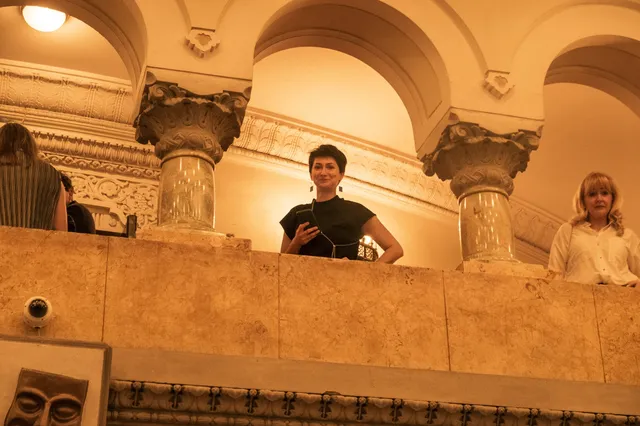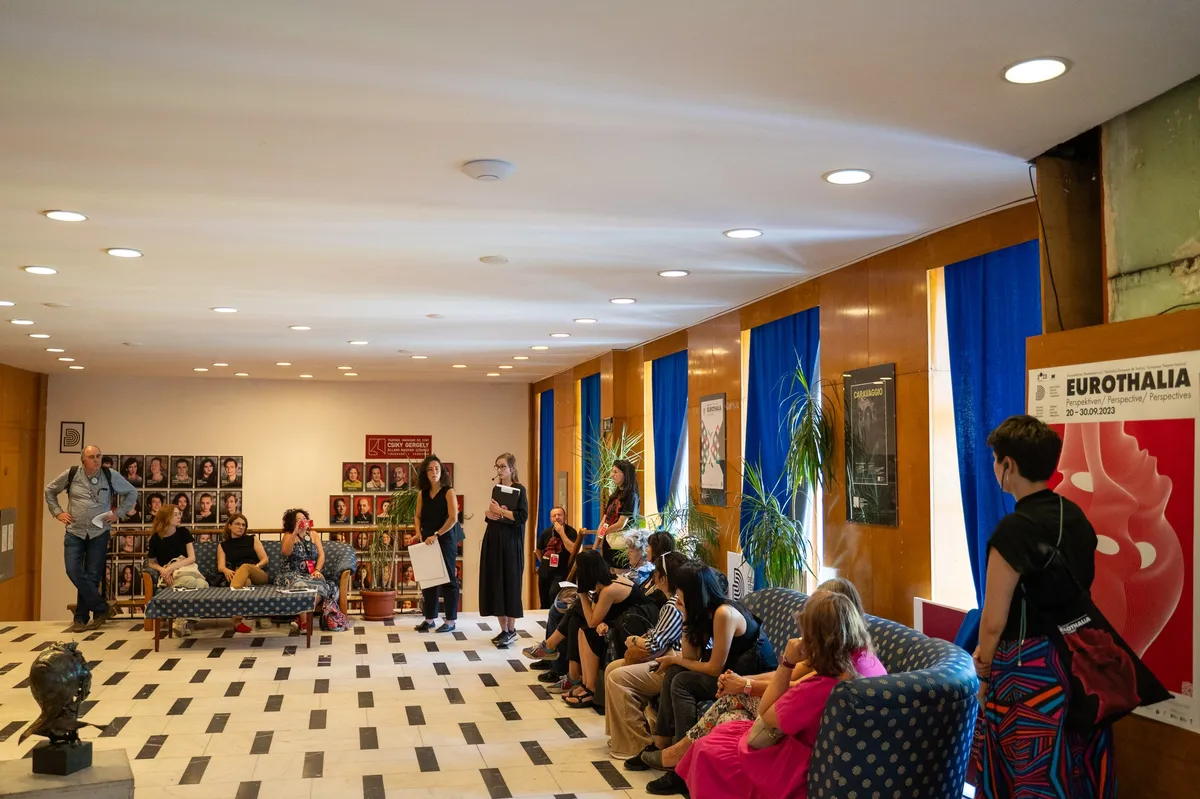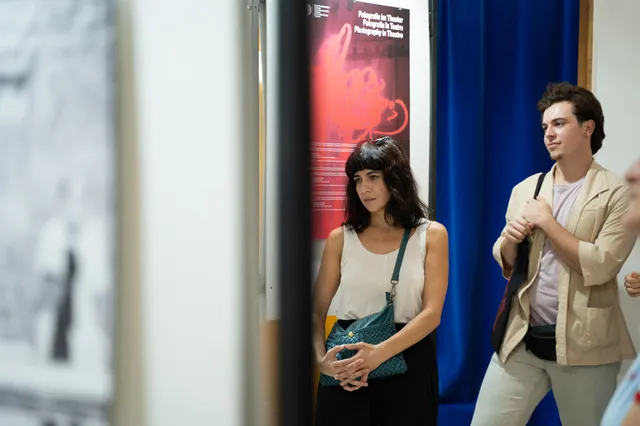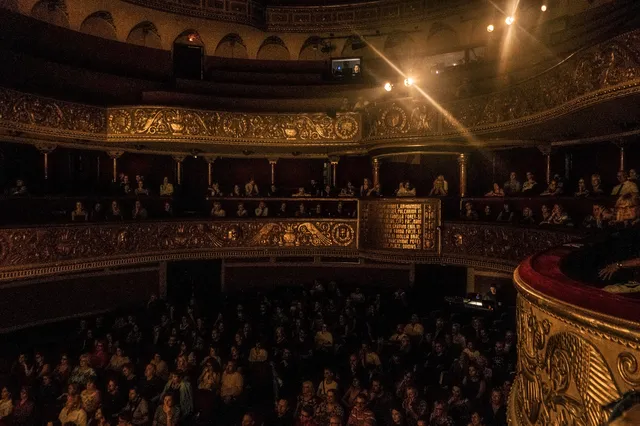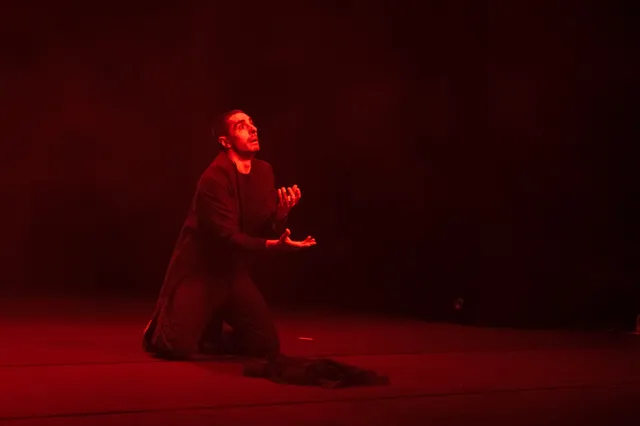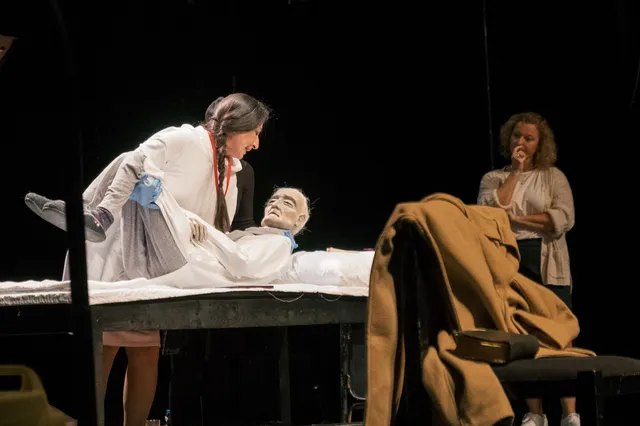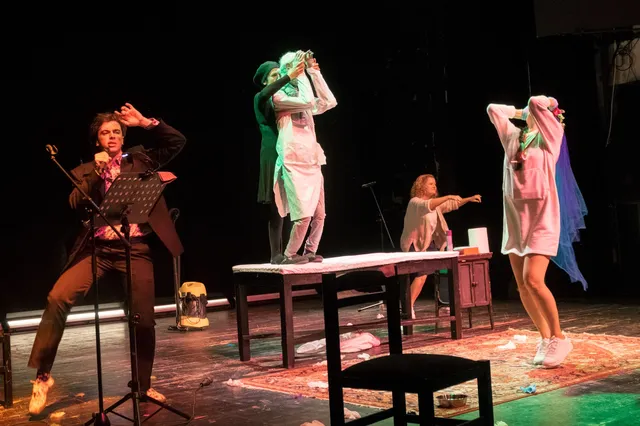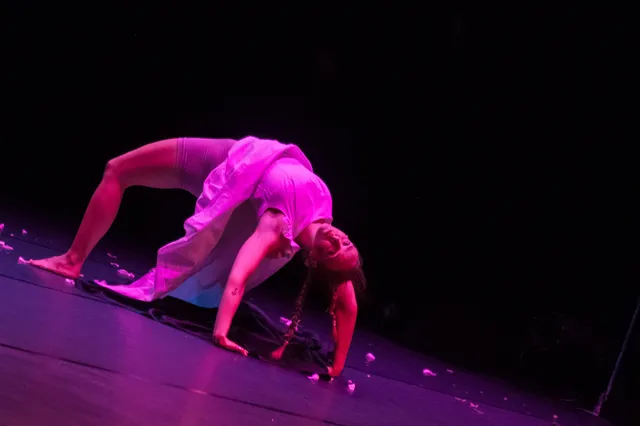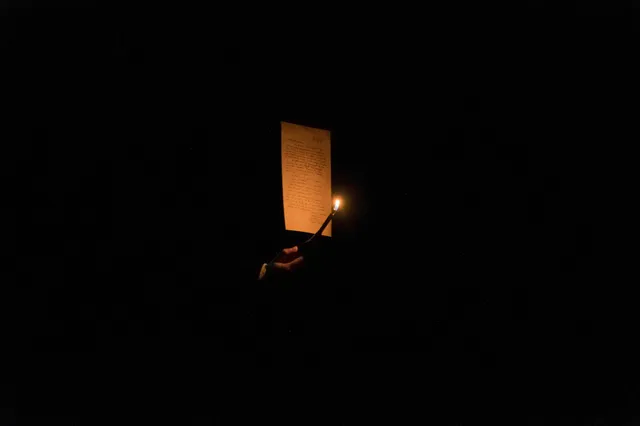Chronicle by Elena Jebelean
The Palace of Culture,
rediscovered thanks to Roxana Pătrulescu and Sandra Andrei, within Eurothalia,
spoke to us in today's tour in several languages, through various types of art.
Hungarian, German, Yiddish, Romanian are languages that have resounded over
time on the stage and in the foyer, sharing the rounds of applause that have
awakened the echo of the old walls, both in the past and today. Architecture,
photography, sculpture, painting, music, dance, theatre have amazed those who
cross its thresholds for so many times. For there are several thresholds.
Above the entrance of
the ticket office of the Opera and the National Theatre, you can read the
COMMUNAL THEATRE carved in stone. Above the stage in the great hall, in Latin,
you are told that on the stage of the living world, you come, see and leave. The
central lodge is dressed in the words of Ovidius – if you are skilled at any
kind of art, quickly show your skill, please others with your gifts, do not let
time pass in vain. Ancient masks make you feel like wearing cothurnus, the
group of visitors seems to you an ancient choir ready to speak. The peacocks
gracefully hold their gilded tails, and the story of Ileana Cosânzeana from the
“sky” of the big hall is answered by another, from the southern wall of the
foyer, one with an emperor and an empress, with cheerful courtiers, with
singers and a harlequin. They're all smiling. Sometimes a little sad – the
truth of art also hurts, sometimes.
With their smiles, they
look at you from portraits of the actors of the German State Theatre Timișoara
and of the Hungarian State Theatre “Csiky Gergely”. You return their smile and
move on through the labyrinth, you find out about the fires, about the ’38
attack, you imagine yourself dancing at the ball in the Reduta hall, you
discover a lot of details about the space where plays are taking place – the stage
box, its mirror, the harlequin with and without pants, the yard, the garden,
the guillotine curtain. So many years, names of architects, stairs up and down,
times with highlights and compromises. From the balcony, you admire the Victory
Square, while you stroke the bullet wound from the stone column, under the
volutes of the capital, under the blue September sky. In the foyer you look in
the mirrors, you smile at the one who, more than 40 years ago, was mirrored in
them for the first time, humming from My
Fair Lady. Oh, yeah, you don't just find out what's backstage, you also get
to see what happens in the booths, in the rehearsal rooms, and in the studio
rooms. You also discover what's under the floors, and what's beyond the walls,
why you have to climb three more steps towards the Hungarian and German
theatres, and what happened, up to a point, with the four statues of the muses
that should have guarded the corners of the building.
You wouldn't leave. But
you also have two shows to see today, it's not a festival for nothing. The tour
is ready. You received materials, bibliographic lists, answers to questions.
From the door of the high painting hall, you take with you the transformed
inscription: initially, it was an interrogative Come
or leave?, now partially covered, it became
Dream or leave. And you wonder how
many dreams, how many ideas took shape here, became shows and awakened minds,
tamed souls. And, while the dancers performing in the show Traces are evolving before your eyes, you are still humming Oh, how wonderful it would be! Miracles
happen before our eyes, to which we also contribute. Buildings are erected by
stabilizing the swamp with oak trunks. Theatres are being rebuilt after fires.
Dictatorships are overthrown. People come to shows that bring distant worlds to
the city. But especially, people come to shows played by the people of
Timișoara, shows where, above the mother tongue, everybody applauds in the same
language – of admiration, of gratitude.
---
“Theatre Chronicle @ Eurothalia” is a programme conceived by Daniela
Șilindean together with the team of the German State Theatre Timișoara, within
the Eurothalia 2023 European Theatre Festival, held between 20-30 September
2023, financed by the National Cultural Program Timișoara - European Capital of
Culture in 2023.
